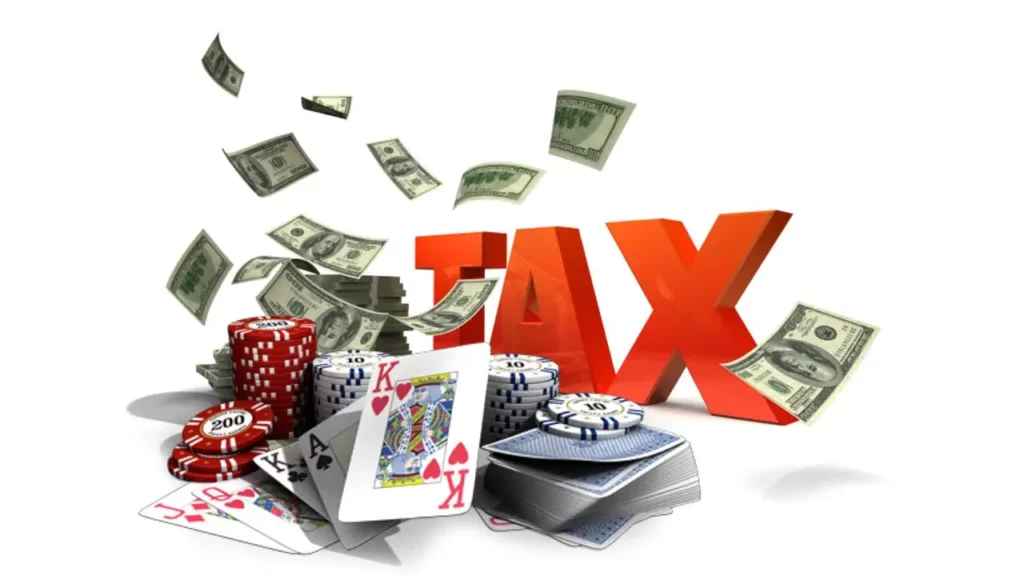When the conversation turns to gambling, the exciting thrill of a big win often overshadows the mundane but essential topic of taxes. It’s essential to know that in many jurisdictions, gambling winnings are considered taxable income.
This means that, just like your regular paycheck, the government wants a piece of your casino, racetrack, or lottery jackpot. However, that doesn’t mean you’re without options. Let’s get to know how to not pay taxes on gambling winnings.
Gambling Winning and Taxes

Gambling winnings, whether from casino games, sports betting, lotteries, raffles, or other sources, are generally considered taxable income in many countries, including the United States. To ensure how to not pay taxes on gambling winnings, follow the points given below:
1. Always Report Your Winnings
First and foremost, never try to evade taxes by not reporting your winnings. This can lead to severe penalties, interest, and potential criminal charges. The accurate phrase shouldn’t be “how not to pay taxes” but rather “how to legally reduce the amount of taxes owed on gambling winnings.”
2. Itemize Your Deductions
To potentially reduce the tax burden on your winnings, consider itemizing your deductions. This approach allows gamblers to deduct gambling losses, but only to the extent of their winnings. In other words, you can’t claim more in losses than you’ve won. Keeping thorough records is essential. This includes:
- Dates and types of wagering.
- Names and locations of gambling establishments.
- Amounts won or lost.
- Names of other persons present (if any).
3. Understand the Limitations

Remember, even if you itemize your deductions, you can’t simply deduct all your gambling losses without any cap. As mentioned earlier, you can only deduct losses up to the amount of your total winnings.
4. Consider Professional and Amateur Status
In some jurisdictions, the treatment of gambling earnings and losses differs between professional gamblers and casual gamblers. Professional gamblers may deduct other expenses related to their gambling activity that casual gamblers cannot. This can include travel, research materials, and other relevant costs.
5. Gambling Winnings and Form W-2G
If you win a significant amount or win a prize other than cash, the payer might issue you a Form W-2G detailing the amount won and any withholding. Make sure to use this form when preparing your tax return.
6. Seek Out Tax-friendly Jurisdictions
There are regions around the world where gambling winnings aren’t taxed or are taxed at a much lower rate. However, moving to another country or state for this reason alone can be a drastic step and may not be practical or advantageous in other areas of life.
7. Always Consult with a Tax Professional

Tax laws can be intricate and change frequently. It’s always recommended to consult with a tax professional or CPA to ensure you’re not only abiding by the laws but also taking advantage of any legal deductions or credits available to you. This is how to not pay taxes on gambling winnings or reduce the taxes.
FAQs: Frequently Asked Questions
Q1. Do I always have to report all my gambling winnings, even if they are small amounts?
Yes, all gambling winnings should be reported, regardless of the amount. However, the practicality of this varies based on the jurisdiction and the specific threshold amounts for reporting. Always consult the tax laws in your region or consult a tax professional to be sure.
Q2. If I lose more than I win in gambling, can I claim a net loss on my tax return?
No. While you can deduct your gambling losses up to the amount of your total winnings if you itemize your deductions, you cannot claim a net loss due to gambling activities on your tax return.
Q3. What documents should I keep as proof of my gambling activities for tax purposes?
It’s essential to maintain thorough records, including receipts, tickets, statements, or other transaction details from the gambling establishment. Document the dates and types of wagering, names, and locations of gambling venues, amounts won or lost, and names of other persons present, if any.
Q4. Are there any states or countries where gambling winnings are not taxed?
Yes, some jurisdictions do not tax gambling winnings or have a much lower tax rate. However, if you’re considering relocating to benefit from these tax breaks, it’s vital to research thoroughly and consider other implications of such a move. Additionally, remember that even if one jurisdiction does not tax the winnings, your home jurisdiction might still require reporting and taxation if you bring the money back. Always consult with a tax professional familiar with international tax laws for guidance.
Conclusion
While it’s natural to want to maximize your take home from a big win, it’s crucial to approach the topic with integrity and prudence. Understanding the relationship between gambling winnings and taxes can save you from potential legal complications and ensure you make the most of your windfall.
Remember, it’s not about evading responsibilities but about navigating them wisely. Hope this guide on how to not pay taxes on gambling winnings was helpful to you.

